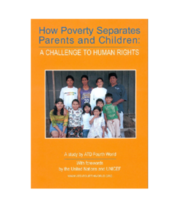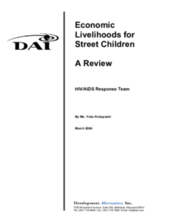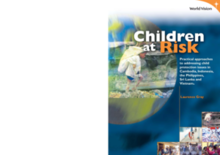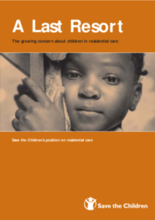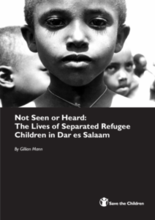Displaying 201 - 210 of 228
An executive summary of lessons learned on preventing family separation in poverty stricken communities. Brief case studies from Guatemala, Haiti, Philippines, United States and Burkina Faso.
The study provides an overview of current policies and programs that address the educational needs of street children as well as an analysis of their needs. It identifies best practices, gaps, and challenges in education and makes recommendations for government policy and programs.
Presents lessons learned from livelihood strengthening initiatives for street children. Discussion of program design options and next steps for action and research.
Outlines the Butterfly Program in India, which utilizes to an empowerment approach to working with children living and working on the streets of New Delhi. Highlights the importance of child participation and rights.
An exploration of the factors surrounding children living on the streets in Africa, including comparisons to street children in Latin America.
Discusses approaches to protecting at-risk children in five Asian countries. Identifies programming and policy measures that effectively address child abuse. Emphasis on committing all levels of society to coordinated practical response.
This paper outlines the International Save the Children Alliance’s position on residential care. It addresses the proliferation of residential care, its negative impact on children and the need for international attention. The paper presents the work of Save the Children and other agencies in order to highlight relevent issues and to provide a guide for those working with separated children.
This report outlines factors contributing to children living on the streets, as well as provides numerous examples of various multi-level interventions around the world. It also includes a lessons learned and improved practices section.
A research paper based on an ethnographic study of children living on the streets in Rio de Janeiro between 2001 and 2002.
A study on the lives of separated refugee children in Dar es Salaam. The study highlights their experiences of abuse and discrimination, and their negative perception of refugee camps.

